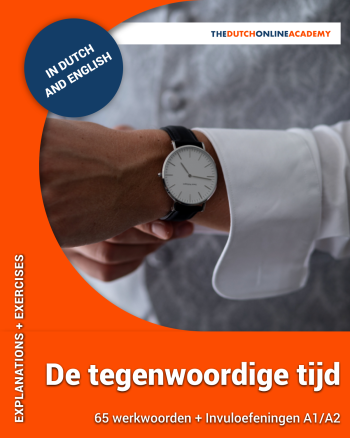Learn the theory
Future tense in Dutch
Learn how to use the future tense in Dutch with Dutch grammar exercises and explanations from The Dutch Online Academy. Let's get started!
Three ways to talk about the future in Dutch
There are three ways to talk about the future in Dutch. Let's start with the easiest one: by using present tense.
1. presens + time indication
Just use present tense and say when it is going to happen (next year, soon, in 2025, tomorrow, etc). For example:
- Ik moet morgen werken
You see the conjugated verb (moet) is in present tense. We just add "morgen" to make clear it is tomorrow.
Other examples:
- Wij kijken vanavond een film.
- Zondag komt Maria op bezoek.
2. gaan + infinitive
Just use gaan and an infinitive verb. You can combine it with a time indication.
- Ik ga werken.
- Ik ga morgen werken.
- Henk gaat een cursus volgen.
- Jullie gaan reizen.
3. zullen + infinitive
There are three ways to use zullen.
1. a suggestion
By starting the sentence with zullen you form a suggestion, like you would with shall in English.
- Zullen we stoppen?
- Zal ik de was doen?
- Zullen we naar de bioscoop gaan?
2. a promise
- Ik zal op tijd komen.
- Wij zullen er zijn.
- Ik zal je helpen.
3. a prediction
- Het zal een succes zijn.
- Het zal koud worden.
- Piet zal tevreden zijn.
- We zullen rijk worden.
- Tim zal weer te laat zijn.
comments
Login to leave a comment


